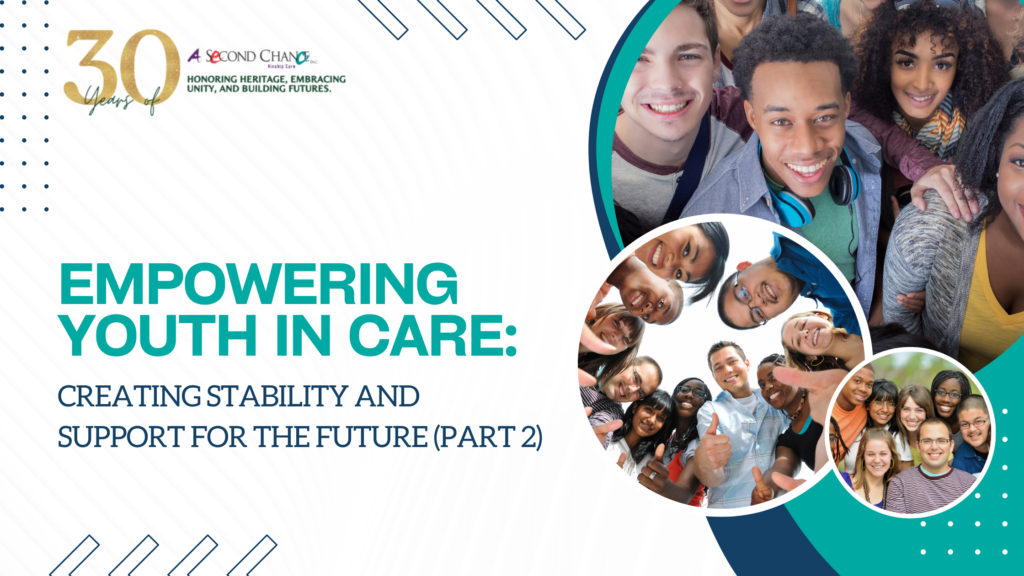Blog
Empowering Youth in Care: Creating Stability and Support for the Future (Part 2)
In this second part of our two-part series, we dive deeper into the critical role of education, vocational training, emotional support, and community collaboration in empowering youth to transition successfully from foster care to adulthood. Tiffany Byrd, Executive Vice President of ASCI’s Philadelphia Regional Office, alongside Dr. Christine White-Taylor, Education Liaison II, work closely with local institutions and mentors to ensure that youth have the tools they need to succeed.

Dr. White-Taylor highlights the importance of educational resources, particularly the Chafee Scholarship Fund, which provides up to $5,000 annually to help young people in care cover post-secondary education-related expenses. For those who are not pursuing a traditional four-year college degree, vocational programs offer essential skills and open doors to good-paying jobs. Dr. White-Taylor explains how programs, like Phase 4, which help students complete their high school education while also learning a trade, can have life-changing impacts. These programs offer an alternative to higher education, ensuring that youth have practical skills that are in demand.
Both Ms. Byrd and Dr. White-Taylor recognize the importance of emotional support in helping youth navigate the difficulties of transitioning out of care. Youth in care often face issues including loss, abuse, and neglect. For these young people, therapy and emotional support are essential components of their healing and growth. “Therapeutic support is a must,” Dr. White-Taylor states. “It’s about meeting each youth where they are and providing the individualized support they need.”
Ms. Byrd agrees, emphasizing the importance of strong, stable relationships in fostering emotional security. “Permanency provides that foundation. It’s a sense of security and assurance that, no matter what happens, you’re not alone,” she reflects. “That assurance can make all the difference when a youth is learning to navigate the world on their own.”
Permanency provides that foundation. It’s a sense of security and assurance that, no matter what happens, you’re not alone.
Tiffany Byrd
The collaboration between schools, businesses, and social service organizations is another vital piece of the puzzle. Dr. White-Taylor stresses the need for a unified approach, where all parties involved work together to ensure that youth receive the support they need. “Schools, caseworkers, and nonprofits need to be on the same page. If we do that, we can create a supportive environment where foster youth can truly thrive,” she says.

Ms. Byrd also highlights the importance of partnerships between local institutions to help youth access the resources they need for success. “We need to invest more in mentorship programs and ensure that every youth in care has access to a network of trusted adults and a robust support system that extends beyond their 18th birthday.”
In addition to these efforts, ASCI organizes events like the Senior Celebration to connect youth with the resources they need to plan for their future. Dr. White-Taylor explains, “At Senior Celebration, we bring in representatives from colleges, vocational schools, and financial aid programs to help students make informed decisions about their future.” This event serves as a comprehensive resource for students, ensuring they understand their options for higher education, vocational training, and financial assistance.
Looking ahead, both Ms. Byrd and Dr. White-Taylor remain optimistic about the future of youth in care. With a focus on mentorship, education, emotional support, and community collaboration, ASCI creates a network of resources that ensures these young people are not only prepared for adulthood but are also equipped to thrive.

With the support of programs designed to provide stability, mentorship, and essential resources, youth are given the tools they need to navigate the challenges of life after care. This guidance not only helps them develop practical skills like financial literacy and workforce readiness, but also offers emotional support that strengthens their resilience. By developing connections with trusted mentors and expanding access to educational opportunities, these young people are empowered to make informed decisions about their futures. With a solid foundation of support, they can embrace their potential and build brighter futures, filled with confidence and hope, as they take the next steps toward independence and fulfillment. Ultimately, this holistic approach ensures that they are not just surviving, but thriving, as they transition into adulthood with the resources and encouragement they need to succeed.
Empowering youth in care requires more than just providing basic needs—it’s about offering a comprehensive support system that addresses education, emotional well-being, and career readiness. Through numerous partnerships, young people in care are given the tools, stability, and encouragement to succeed. As Dr. White-Taylor and Tiffany highlight, it’s essential to continue fostering these networks of support, ensuring that every youth has access to the opportunities and resources they need to thrive. By doing so, we can help these young individuals transition into adulthood with the confidence and resilience to build a future they can be proud of. With ongoing support, guidance, and opportunities for growth, youth in care are not only prepared for independence but are also equipped to achieve their fullest potential.
Dr. White-Taylor concludes, “Through partnerships with local businesses, schools, and social service agencies, we can build a network of resources that helps these young people not just survive but thrive.” With the right support, youth in care are given the opportunity to build the future they deserve.
Through partnerships with local businesses, schools, and social service agencies, we can build a network of resources that helps these young people not just survive but thrive.
Dr. Christine White-Taylor